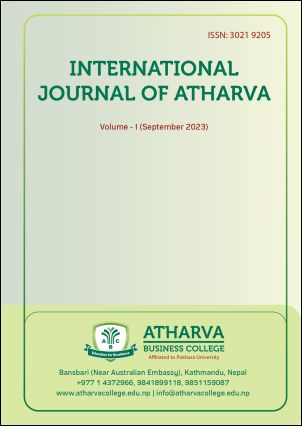ESL Teachers’ Beliefs about Teaching Grammar
DOI:
https://doi.org/10.3126/ija.v1i1.58838Keywords:
Example-focused, instructional decisions, methodologies, pedagogical preferences, rule-focusedAbstract
Teaching grammar is a crucial facet in the context of language teaching. Throughout history, various approaches including instructing based on rules, using examples, and employing texts have been utilized to teach grammar at various level. This qualitative study attempts to explore secondary level experienced ESL (English as a Second Language) teachers' beliefs concerning the teaching of grammar, employing an interpretive paradigm. In an effort to explore these beliefs, a sample of eight experienced ESL teachers participated in the investigation. I employed purposive sampling to select the participants. A semi-structured interview was employed as the primary research tool to capture their perceptions, pedagogical preferences, and underlying assumptions regarding grammar instruction from the participants. The collected data underwent rigorous thematic analysis to unveil recurring patterns, emergent themes, and variations in beliefs across the participant cohort. The study uncovers a diverse array of beliefs held by ESL teachers, spanning from the role of explicit grammar instruction to the integration of communicative approaches. Through the thematic analysis, common threads and discrepancies emerge, revealing the intricate interplay of factors shaping ESL teachers' pedagogical orientations. The implications of this research extend to the realms of teacher training, curriculum design, and educational policy. This study contributes to the broader discourse on teacher beliefs, offering valuable insights that can guide the development of tailored teacher development programs and evidence-based teaching strategies, ultimately enhancing the quality of ESL grammar instruction.
Downloads
Downloads
Published
How to Cite
Issue
Section
License
Copyright (c) 2023 The Author(s)

This work is licensed under a Creative Commons Attribution-NonCommercial 4.0 International License.
This license enables reusers to distribute, remix, adapt, and build upon the material in any medium or format for noncommercial purposes only, and only so long as attribution is given to the creator.





